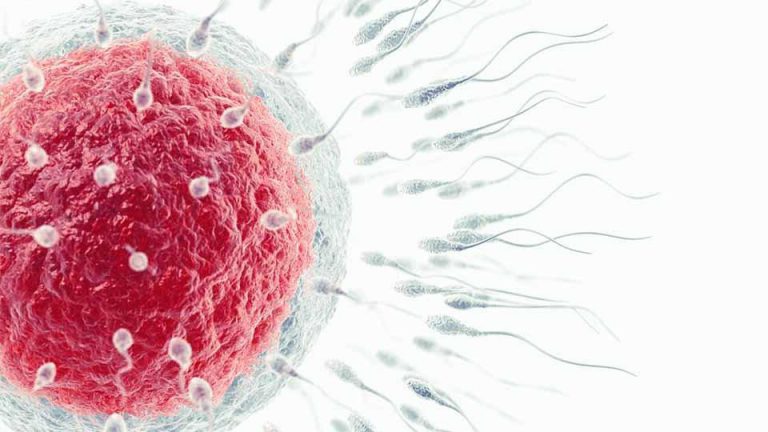How Does Smoking Affect Fertility?

Medically Reviewed by Dr. Kevin J Campbell, MD, a fellow in Male Reproductive Medicine and Surgery at Bayor College of Medicine in Houston, TX, with Dr. Larry Lipshutlz.
The technology of current fertility tests is severely limited– up to 30% of couples are diagnosed with “unexplained infertility”. Therefore, behavioral choices like moderate and daily smoking might be affecting the fertility of the sperm in ways that we can’t see in the standard semen analysis. Here, we explore how smoking might be causing infertility in men by summarizing current scientific research and introducing an innovative new fertility test that can provide some answers.
1. Smoking can decrease sperm count, morphology, and motility
Many couples trying to get pregnant want to know–“Does smoking cause infertility?”.
Yes, and no. Lifestyle factors like smoking, may or may not cause fertility problems for an individual couple, but smoking has certainly been linked to impaired sperm parameters.
Human traits like behavior, health, and personality are determined by our unique genetic and epigenetic code–where both are shaped by our environment (“nature” and “nurture”).
A recent literature review by Harlev et al, analyzed scientific publications on cigarette smoking and male infertility. The authors compared 33 relevant studies of infertile smokers and found that:
30% of studies showed reduction in sperm count
42% of studies showed reduction in sperm morphology
40% of studies showed reduction in sperm motility

Count is the number of sperm. Morphology is the shape. Motility is the movement.
However, many of the studies reviewed by Harlev et al. show no significant changes in count, morphology, or motility. Another study conducted by Künzle et al., with 2,105 participants, found that sperm count, motility, and morphology were significantly affected in smokers.
Although the data is somewhat mixed on the question of whether or not smoking causes infertility, the American Society for Reproductive Medicine (ASRM) has said that smoking can affect basic semen parameters in a dose-dependent manner. However, given that values still mostly remain in the normal reference range, “future studies should investigate the effect of cigarette smoking on sperm function at the molecular level.”
This leads to the question, does smoking impact sperm quality in ways that may not be recognized using the semen analysis? In other words, just because your sperm count, morphology, or motility is normal, does this mean that your sperm is working just fine? There is a lot of new data that suggests that there is much more to the story than simple semen parameters.
2. Smoking can increase sperm DNA fragmentation
One such test that looks at the molecular level of the sperm is the DNA Fragmentation test. The DNA fragmentation index (DFI) is a ratio that detects the percent of “fragmented” sperm DNA. A higher DFI % means more DNA in the sperm is fragmented (broken) and is believed to decrease fertility. A notable study by Sepaniak et al., found that smokers have a significantly higher degree of DNA fragmentation compared to non-smokers. But interestingly, they found that in many patients the semen analysis of count, morphology, and motility was normal even though the men had higher DNA fragmentation rates.

DNA fragmentation measures the amount of broken pieces of DNA in sperm.
It is hypothesized that smoking causes oxidative stress, which ultimately leads to increased DNA fragmentation. However, other causes such as; infection, high fever, diet, elevated testicular temperature, environmental pollutants, age, varicocele, leukocytospermia and many other associations all potentially contribute to sperm DNA fragmentation. It is interesting that smoking men had more “broken DNA” in sperm even though many had normal semen analysis test values. Although it sounds possible that fragmented DNA in sperm might cause infertility, many couples are able to get pregnant and start families even though they have significantly high DNA fragmentation.
Ultimately, the American Society for Reproductive Medicine finds that the clinical value of DNA fragmentation testing is controversial and inconclusive and therefore it is not a recommended routine test to evaluate male factor infertility. Despite the limitations of DNA Fragmentation in its applications of fertility testing as a whole, the scientific community has realized that there is much to be discovered at the molecular level because often times the sperm count, morphology, and motility are normal.
3. Smoking can change the sperm’s epigenetic profile
Modern technological advancements have made DNA testing quick and inexpensive, making it feasible to use for patients as a diagnostic tool for fertility. By analyzing the sperm DNA of known fertile patients with infertile ones, scientists are able to compare the similarities and differences of “epigenetic profiles” to see what might be causing male infertility on the DNA level.
Epigenetics can be thought of as additional information added on top of our DNA in response to our environment. Evidence strongly shows that these epigenetic molecules help control which genes are turned on, or off. This mechanism that controls our gene expression is a tightly regulated mechanism that happens in our body in a non-random manner. It’s the reason our cells know to develop exactly into a muscle cell, brain cell, white blood cell, etc. despite having the same DNA. What also makes the field of epigenetics so intriguing is that this information can change within your lifetime and is potentially heritable across generations. This means that stress, diet, smoking, etc. can alter your DNA which affects how it’s read by your body, and more importantly, these alterations may be passed on to future generations.

Methylation and Acetylation are two types of epigenetics that occurs in our body every day and are tightly regulated mechanisms. When these processes are altered, certain genes involved in fertility might be inappropriately turned on or off.
Given the importance of epigenetics to how our DNA is read, scientists have begun to study it more closely. In 2016, the National Institutes of Health (NIH) published the largest study to date investigating how cigarette smoking affects the epigenome. After looking at nearly 16,000 people, they found that smokers had methylation changes affecting more than 7,000 genes (which is 1/3 of the human genome). As one might expect, many of the genes are linked to heart disease and cancer known to be caused by smoking. But what happens to these changes when we stop smoking? Unfortunately, it was found that in 19 genes smoking-related changes did not return to never-smoker levels even after 30 years of smoking cessation. Despite these unfortunate findings, “The encouraging news is that once you stop smoking, the majority of DNA methylation signals return to never-smoker levels after five years,” says Roby Joehanes of Harvard Medical School and lead author on this study. Overall, what this study shows is that our interaction with the environment leaves “fingerprints” on our DNA, providing a new avenue of health information waiting to be interpreted by scientists.
Additionally, there are numerous studies that show an association between epigenetic alterations in sperm and infertility. Our current understanding of unexplained infertility, as well as what environmental factors may be causing infertility in this specific group of patients, has primarily been limited by the available technologies to address such questions. Now that we have the ability to dig much deeper into our DNA by using epigenetic analyses, an entirely new opportunity presents itself to improve our understanding of infertility at the molecular level.
Epigenetics, in particular, represents an entirely new approach to evaluating how the environment can affect how our DNA is read, and what impact these changes may have across generations.







